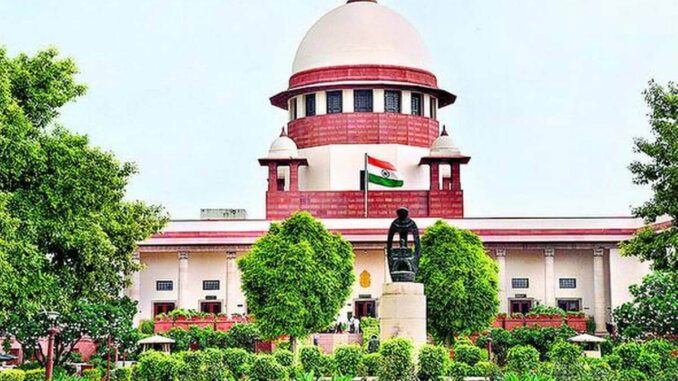
New Delhi : The Supreme Court has struck down an Income Tax provision of exclusion of Sikkimese women from exemption under Section 10(26AAA) Income Tax Act, 1961. if they marry non-Sikkimese persons. The apex court said that excluding a Sikkimese woman merely because she marries a non-Sikkimese is totally discriminatory and thus unconstitutional. Delivering the judgement, the apex court noted that a woman is not a chattel and has her own identity. It said that merely the fact of being married to a non-Sikkimese cannot take away that identity. The verdict was delivered by a bench of Justices M R Shah and B V Nagarathna observed.
The bench noted that there is no disqualification for a Sikkim man, who marries a non-Sikkimese after 01.04.2008.
According to LiveLaw, the top court verdict extended the exemption under Section 10(26AAA) of the 1961 provision even to persons of Indian origin residing in Sikkim as on April 26, 1975, when the state merged with India. With this verdict, the Supreme Court virtually extended the tax exemption net to almost 95 percent population in Sikkim.
The earlier Income Tax exemption used to apply to only those residents who had the Sikkim Subjects Certificate or their descendants who became Indian Citizens vide the Sikkim Citizenship Amendment Order, 1989. According to a Hindustan Times report, the two categories consisted of the Bhutia Lepchas, Sherpas and Nepalis who form about 94.6% of Sikkim’s population. Those who approached the court are old settlers, who were domiciled in Sikkim on the date of its merger with India. They are just 1 percent of the population.
The petitioners have contended that Provision to Section 10(26AAA) of the Act, 1961 excluding the Sikkimese women from the exempted category if they marry non-Sikkimese after 01.04.2008 is discriminatory and unconstitutional.
Bureau Report
Leave a Reply